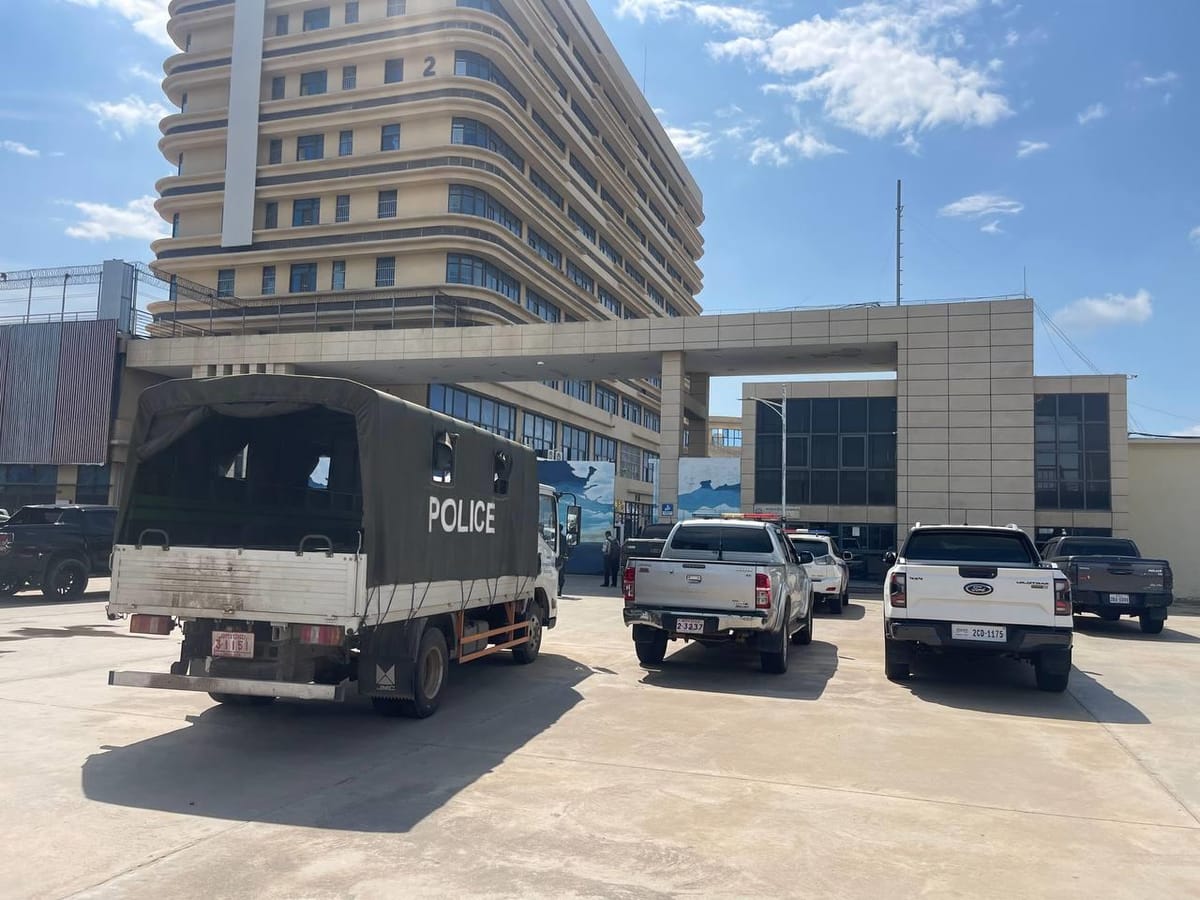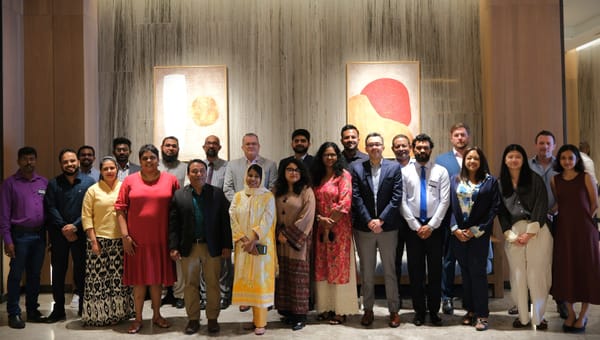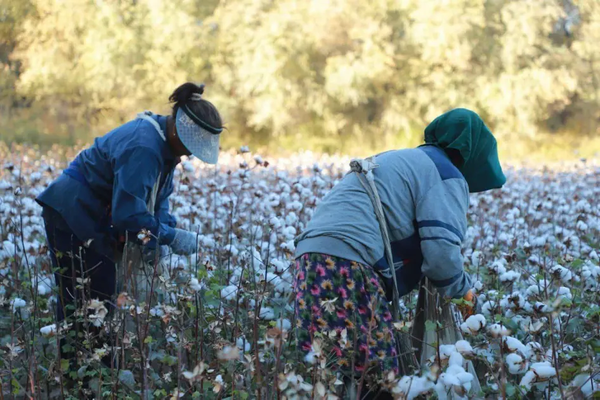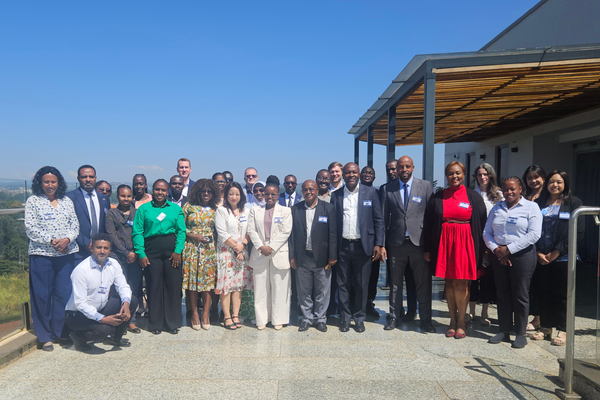Cambodian police claim to find no criminal activity following a scamming compound raid
Scam operators in Cambodia could be emboldened after officials announce raid on compound but arrest few, the Australian Government responds to the Modern Slavery Act review, and an investigation finds UK “Italian” purees may use forced labour-grown Chinese tomatoes.

A compound in Cambodia commonly known as “Mango Park” remains fully operational despite being raided by police in October.
The raid came a day after a South Korean news outlet published an investigative report identifying the Kampong Speu compound as a cyberscam hub that was trafficking Koreans to scam others and allegedly colluding with local law enforcement. A National Police spokesman confirmed the operation was conducted to “check if foreign employees at the location were being tortured” and media reports, including those from pro-government news site Fresh News, said the raid had resulted in the arrest of more than 1,000 foreign nationals.
However, the Deputy Chief of Kampong Speu Provincial Police claimed that, after a thorough inspection, it was confirmed the buildings were owned by a Chinese company and housed various workplaces, including construction and retail businesses. No evidence of torture, detention, or signs of kidnapped or tortured South Korean or other foreign nationals were found inside these buildings, he said, adding that the workers were legal migrants working under lawful conditions and had all been released.
Despite this, media reports published on 1 November stated that 25 suspects detained in the raid were sent to the Phnom Penh Municipal Court. Details on any possible charges were not immediately available, and there has been no further reporting. In a related Telegram group, some individuals claiming to work inside Mango Park reported their ransoms had increased by an additional US$2,000 to US$5,000, allegedly because their companies were required to pay “protection fees”. However, this information remains unverified.
Groups monitoring Cambodia’s online scam industry and rescue teams have been aware of fraud operations located at this site for at least two years, and numerous rescue requests have been received from people held there, according to Cambodia CTIP. While the officials have publicly shielded the compound, stating that it is a normal place of business, it is clear this is not the case, it adds. The compound is highly secured with walls and barbed wire up to three stories high in places, while every window is barred from the ground floor to the highest levels, and a tall gate remains closed and guarded by security. Photos of the raid show KTV and massage parlors inside, a common feature of scam compounds, while images of the occupants show mostly male foreigners, dressed in T-shirts, shorts and flip-flops, and the building carries no company logo or markings. Although the current ownership is uncertain, the site was developed by a company affiliated with Prince Group, which has been linked in reporting to various other “untouchable” compounds across the country, although the company denies any involvement in illegal activity.
None of the individuals who had previously sent distress messages to the rescue teams were released during the raid, and the compound’s gates quickly returned to their heavily guarded state, with multiple security guards, Cambodia CTIP says. On 29 October, a program partner visited and confirmed that the situation at the compound was back to normal and a source who is in contact with someone inside confirmed that the site was fully operational again.
This event could potentially have a significant impact on the trajectory of the scam industry in Cambodia. In early October, various informants reported to Cambodia CTIP partners that scam companies in Sihanoukville were relocating to border cities in anticipation of large-scale raids. However, this incident sends a message that even highly visible and well-known scam sites can continue to operate, and that the Cambodian Government will continue to protect them, even under international pressure. This reassurance may embolden operators, reinforcing their sense of security and potentially fueling further expansion of these operations across the country.
Here’s a round-up of other noteworthy news and initiatives:
The Australian Government has released its response to the review of the Modern Slavery Act, agreeing in full, in part, or in principle to 25 of the 30 recommendations, including enhancements to reporting criteria, while committing to consultations on further amending the Act to strengthen due diligence requirements.
The BBC released an investigation yesterday alleging that “own-brand ‘Italian’ tomato purees sold in UK supermarkets appear to contain tomatoes grown and picked in China using forced labour”. According to the investigation, these include products sold in Asda, Tesco, Morrisons and Waitrose. The investigation highlights that China grows about a third of the world’s tomatoes and most Chinese tomatoes come from the Xinjiang region, highlighting the UK’s lack of laws to prevent human rights abuses in supply chains and the urgent need for stronger legislation.
Meanwhile, last week, Volkswagen announced the sale of its Xinjiang plant to a Shanghai government-owned company after years of investor pressure over alleged human rights abuses in the region, marking an end to its presence in Xinjiang while extending its partnership with Chinese automaker SAIC by a decade.
A field study by Amu highlights the pervasive influence of human trafficking networks in migrant camps near Afghanistan’s borders, documenting exploitation through bribes, false promises, and connections to broader criminal enterprises, exacerbated by dire camp conditions.
This recent article discusses how the victimhood of trafficked individuals in Southeast Asia’s scam compounds is often contested, with governments downplaying abuse while activists and NGOs highlight systemic exploitation and forced criminality.
The Council of ASEAN Chief Justices has released publications addressing human trafficking, cross-border child disputes, and judicial videoconferencing, underscoring its commitment to fostering legal harmonization and collaborative judicial practices across Southeast Asia.
Join the Global Alliance Against Traffic in Women and Freedom Collaborative for a webinar, “Money Matters: Analyzing the Impacts of Anti-Trafficking Funding”, on 11 December at 9 AM EST / 3 PM CET / 9 PM ICT. Panelists will explore how anti-trafficking funds are allocated – how much reaches survivors and frontline organizations versus intermediaries and bureaucracies – and discussions will feature insights from Anti-Trafficking Review and frontline service providers.




